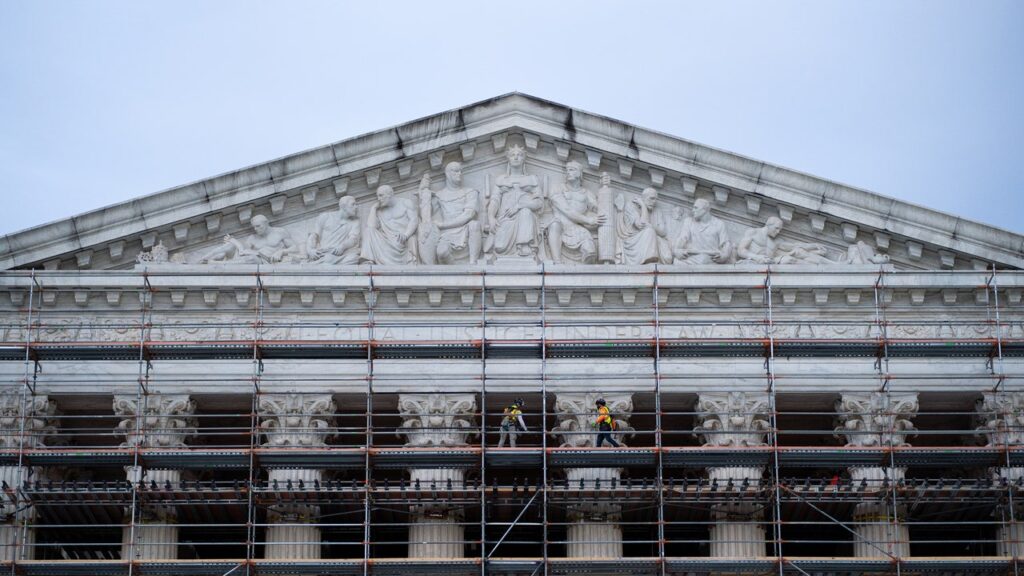“They’ve effectively disappeared.” A report on forty-eight people arrested by ICE in New Mexico, in early March—whose identities and whereabouts remain unknown. But, first, a breakdown of this week’s Supreme Court decisions on Trump’s most drastic immigration policies. Plus:
Photograph by Bill Clark / Getty
Jonathan Blitzer
Blitzer is a staff writer covering immigration and politics.
Near the end of Donald Trump’s first term, his top immigration adviser, Stephen Miller, encouraged Administration officials not to worry about federal judges who might get in their way. “Don’t waste time trying to anticipate the risk of litigation,” one official, summarizing Miller’s argument, told me at the time. “We’ll win at the Supreme Court.”
Earlier this week, when one of the Trump Administration’s most extreme immigration policies came before the Court, the Justices seemed to validate Miller’s strategy. But it was a strange, technical ruling that requires some context.
On March 14th, the President signed a proclamation to use the Alien Enemies Act—an eighteenth-century law invoked only three times before in U.S. history—as the basis for deporting Venezuelans to a mega-prison in El Salvador. Citing alarmingly flimsy evidence, the government claimed these individuals were members of a violent gang. The American Civil Liberties Union sued, and the same day a federal judge in Washington, D.C., issued an order blocking the deportations. Typically, the saga would halt there, as lawyers argued it out in court. But the Trump Administration made a shocking move: it deported two hundred and thirty-eight Venezuelans anyway.
On Monday, in a 5–4 decision, the Supreme Court ruled that the A.C.L.U. had brought its claims to the wrong court. According to the justices in the majority, the lawyers should have brought their case to a judge in Texas, where the deportees had been briefly detained. “This holding was, suffice it to say, not exactly obvious,” the legal scholar Steve Vladeck wrote. For one thing, the men in question were no longer in the United States. What could it possibly mean for them to seek relief now, in Texas? The Administration’s defiance of a federal judge went unaddressed. “The Government’s conduct in this litigation poses an extraordinary threat to the rule of law,” Justice Sonia Sotomayor wrote, in her dissent.
And yet, the Supreme Court hardly validated the Trump Administration’s position. The decision was explicit on one point: those who are detained under the Alien Enemies Act must be given a chance to defend themselves before they are deported. The A.C.L.U. have already brought new cases on behalf of Venezuelans who are detained in New York and Texas and face possible deportation to El Salvador. Two federal judges so far have issued orders blocking the government from deporting them.
But a horrifying question remains, one which neither the Supreme Court nor the Trump Administration seems interested in trying to answer. The men who are now stuck in a Salvadoran prison were sent there without due process. It’s been almost a month since they were deported. Their families and lawyers haven’t spoken to them. What will happen to them now?
More Top Stories
Daily Cartoon
More Fun & Games
P.S. Lady Gaga headlines Coachella tonight, where she’ll presumably perform some of her most recent album, “Mayhem.” It is her “happiest record,” Rachel Syme argues. And it “reaffirms that Gaga is one of the hardest-working people in the business.” ⛺
Premium IPTV Experience with line4k
Experience the ultimate entertainment with our premium IPTV service. Watch your favorite channels, movies, and sports events in stunning 4K quality. Enjoy seamless streaming with zero buffering and access to over 10,000+ channels worldwide.

















